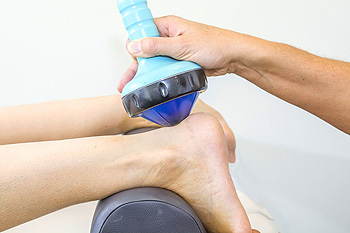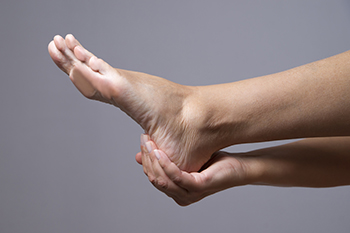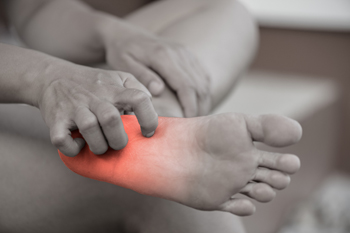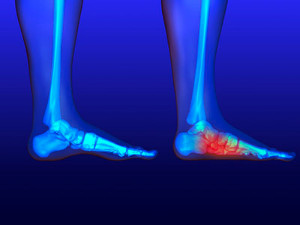Connect With Us
Blog
Medicines That Help Prevent Gout

Gout, a form of arthritis, is characterized by painful joint swelling due to a buildup of uric acid in the bloodstream. It often affects the big toe as well as other joints. Failing to address gout can lead to lasting joint damage. Treatment for gout involves lifestyle adjustments, including alcohol avoidance and weight management, along with medication. During acute attacks, non-steroidal anti-inflammatory drugs, NSAIDs, can alleviate pain and swelling, though they don't impact uric acid levels. Corticosteroids, taken orally or injected into affected joints, also offer relief. Colchicine, an alternative to NSAIDs, lessens inflammation if taken early. To prevent future gout occurrences, medications are used to lower uric acid levels in the body. Xanthine oxidase inhibitors limit uric acid production, while uricosuric medicines increase its elimination via urine. It is important to be aware of the adverse effects of any medication. For help with the management of gout, it is suggested that you keep in communication with a podiatrist, who is specifically trained to deal with such problems.
Gout is a foot condition that requires certain treatment and care. If you are seeking treatment, contact one of our podiatrists from The Podiatry Center, PC. Our doctors will treat your foot and ankle needs.
What Is Gout?
Gout is a type of arthritis caused by a buildup of uric acid in the bloodstream. It often develops in the foot, especially the big toe area, although it can manifest in other parts of the body as well. Gout can make walking and standing very painful and is especially common in diabetics and the obese.
People typically get gout because of a poor diet. Genetic predisposition is also a factor. The children of parents who have had gout frequently have a chance of developing it themselves.
Gout can easily be identified by redness and inflammation of the big toe and the surrounding areas of the foot. Other symptoms include extreme fatigue, joint pain, and running high fevers. Sometimes corticosteroid drugs can be prescribed to treat gout, but the best way to combat this disease is to get more exercise and eat a better diet.
If you have any questions please feel free to contact our office located in Millburn, NJ . We offer the newest diagnostic and treatment technologies for all your foot and ankle needs.
Plantar Fasciitis May Be Helped With Shockwave Therapy

A small percentage of people who have plantar fasciitis experience little or no positive response to ordinary treatment. An option to consider may be to have Extracorporeal Shock Wave Therapy (ESWT) performed. This can be a successful treatment for this type of foot condition. Shockwave therapy is administered by targeting shock waves into the damaged tissue surrounding the plantar fascia. This procedure generally takes about 20 minutes and anesthesia is typically not needed if the treatment is low impact. Conversely, with high-intensity treatment, general anesthesia may be needed as a result of the pain that may be felt. Patients have experienced little or no downtime after the session, however, several treatments may be needed for permanent relief. Possible side effects may include swelling, redness, and slight bruising at the treatment site. If you suffer from heel pain, please consult with a podiatrist who can determine if shockwave therapy is right for you.
Shockwave therapy is a treatment commonly used to treat various injuries and conditions, particularly plantar fasciitis in the feet. To learn more, consult with one of our podiatrists from The Podiatry Center, PC. Our doctors can provide the care you need to keep you pain-free and on your feet.
Shockwave Therapy
Shockwave therapy is a new treatment option designed to treat bone conditions such as tennis elbow, shoulder pain, and others. Shockwave therapy uses high intensity sound waves that are directed to the affected tissues of the body with pinpoint accuracy. The effects are very beneficial, leading to a production of collagen fibers, eliminating inflammation.
Who Benefits from Shockwave?
Shockwave is recommended for patients suffering from heel pain and associated problems. Heel pain is a common condition which can be caused by obesity, overexertion, and spending a substantial amount of time on hard floors with your feet exposed and unsupported.
Fast and Easy
The therapy is actually a simple process that can leave patients feeling better the very next day. Shockwave therapy is not as dramatic as it sounds. It enables more blood flow to effected areas, addressing the source of the problem and allowing treatment to last for a long time.
Treatment & Recovery Time
Shockwave treatment will enable your feet to recover quickly. This is especially important since surgery is not required. It is cost effective and does not require the use of anesthesia. This treatment is a better option to surgery, since it is proven safe.
If you have any questions, please feel free to contact our office located in Millburn, NJ . We offer the newest diagnostic and treatment technologies for all your foot and ankle needs.
Are You Suffering From Ingrown Toenails?
Causes and Treatments for Ingrown Toenails

Within the world of common foot woes, ingrown toenails stand as a painful and bothersome issue that can disrupt daily life. These occur when the edges of a toenail grow into the surrounding skin, leading to inflammation and discomfort. Often stemming from improper nail trimming, wearing tight footwear, or genetic reasons, ingrown toenails can bring about pain, swelling, and possibly infection. Treating this condition involves gentle soaking, proper nail trimming techniques, and wearing comfortable, well-fitting shoes. In cases of infection, consulting a podiatrist is crucial in preventing complications. In more severe instances, surgical intervention may be necessary to provide long lasting relief. By understanding the causes and exploring the range of treatments, individuals can actively engage in preventing ingrown toenails. If you have developed an ingrown toenail, it is strongly suggested that you confer with a podiatrist who can offer you treatment methods that are correct for you.
Ingrown toenails can become painful if they are not treated properly. For more information about ingrown toenails, contact one of our podiatrists of The Podiatry Center, PC. Our doctors can provide the care you need to keep you pain-free and on your feet.
Ingrown Toenails
Ingrown toenails occur when a toenail grows sideways into the bed of the nail, causing pain, swelling, and possibly infection.
Causes
- Bacterial infections
- Improper nail cutting such as cutting it too short or not straight across
- Trauma to the toe, such as stubbing, which causes the nail to grow back irregularly
- Ill-fitting shoes that bunch the toes too close together
- Genetic predisposition
Prevention
Because ingrown toenails are not something found outside of shoe-wearing cultures, going barefoot as often as possible will decrease the likeliness of developing ingrown toenails. Wearing proper fitting shoes and using proper cutting techniques will also help decrease your risk of developing ingrown toenails.
Treatment
Ingrown toenails are a very treatable foot condition. In minor cases, soaking the affected area in salt or antibacterial soaps will not only help with the ingrown nail itself, but also help prevent any infections from occurring. In more severe cases, surgery is an option. In either case, speaking to your podiatrist about this condition will help you get a better understanding of specific treatment options that are right for you.
If you have any questions please feel free to contact our office located in Millburn, NJ . We offer the newest diagnostic and treatment technologies for all your foot and ankle needs.
Foot Care Routines

The feet play a vital role in the functioning of your entire body, housing important nerves that connect to various organs. To ensure they function well, it's essential to keep your feet clean and comfortable. Here are some tips to maintain healthy and happy feet. Soak your feet in warm water mixed with shampoo or liquid soap for 10 minutes. Use a foot file to gently remove calluses and any hardened skin. Then massage your feet with moisturizer or foot cream for nourishment and softness. Remember to allow the skin to absorb the lotion fully before putting on socks. Other suggestions for a foot routine include giving your feet a chance to breathe by walking barefoot while resting at home or at your desk. An important part of foot care is trimming your toenails properly to avoid the discomfort of an ingrown toenail. It is also essential to wear shoes that fit well, leave room for the toes to move freely in, and provide proper cushioning, especially if your job involves standing for long periods. Your feet will thank you by staying healthy and happy, contributing to your overall well being. For any foot problems you may have, it is suggested that you consult a podiatrist.
Everyday foot care is very important to prevent infection and other foot ailments. If you need your feet checked, contact one of our podiatrists from The Podiatry Center, PC. Our doctors can provide the care you need to keep you pain-free and on your feet.
Everyday Foot Care
Often, people take care of their bodies, face and hair more so than they do for their feet. But the feet are a very important aspect of our bodies, and one that we should pay more attention to. Without our feet, we would not be able to perform most daily tasks.
It is best to check your feet regularly to make sure there are no new bruises or cuts that you may not have noticed before. For dry feet, moisturizer can easily be a remedy and can be applied as often as necessary to the affected areas. Wearing shoes that fit well can also help you maintain good foot health, as well as making it easier to walk and do daily activities without the stress or pain of ill-fitting shoes, high heels, or even flip flops. Wearing clean socks with closed shoes is important to ensure that sweat and bacteria do not accumulate within the shoe. Clean socks help to prevent Athlete’s foot, fungi problems, bad odors, and can absorb sweat.
If you have any questions please feel free to contact our office located in Millburn, NJ . We offer the newest diagnostic and treatment technologies for all your foot and ankle needs.
Reminder: When Was the Last Time...?
Types of Foot Arch Pain

The arches of the feet work to transfer the weight from the heels to the toes when you walk. When the tendons and ligaments of the foot, which make up the arch, are inflamed they can cause pain and discomfort. The main type of arch pain comes from plantar fasciitis. The plantar fascia is a band of tissue that connects the toes to the heels, and it can become inflamed and painful. Another cause of arch pain is a bone fracture or sprained ligament. Arthritis and flat feet also may result in arch pain. The type and cause of the arch pain will dictate how to handle it. Grade 1 arch pain happens during activity. Grade 2 occurs before and after the activity but doesn’t impede the activity itself. Grade 3 arch pain occurs before, during, and after activity, and it also affects performance. Finally, with Grade 4 arch pain, activity is difficult, and pain is constant. For more information on how to deal with foot arch pain, it is suggested that you make an appointment with a podiatrist.
Foot Pain
Foot pain can be extremely painful and debilitating. If you have a foot pain, consult with one of our podiatrists from The Podiatry Center, PC. Our doctors will assess your condition and provide you with quality foot and ankle treatment.
Causes
Foot pain is a very broad condition that could be caused by one or more ailments. The most common include:
- Bunions
- Hammertoes
- Plantar Fasciitis
- Bone Spurs
- Corns
- Tarsal Tunnel Syndrome
- Ingrown Toenails
- Arthritis (such as Gout, Rheumatoid, and Osteoarthritis)
- Flat Feet
- Injury (from stress fractures, broken toe, foot, ankle, Achilles tendon ruptures, and sprains)
- And more
Diagnosis
To figure out the cause of foot pain, podiatrists utilize several different methods. This can range from simple visual inspections and sensation tests to X-rays and MRI scans. Prior medical history, family medical history, and any recent physical traumatic events will all be taken into consideration for a proper diagnosis.
Treatment
Treatment depends upon the cause of the foot pain. Whether it is resting, staying off the foot, or having surgery; podiatrists have a number of treatment options available for foot pain.
If you have any questions, please feel free to contact our office located in Millburn, NJ . We offer the newest diagnostic and treatment technologies for all your foot care needs.
Causes, Symptoms, and Management of Foot Neuropathy

Foot neuropathy is characterized by nerve damage affecting foot sensation and function. It can result from various underlying conditions, including diabetes, alcohol abuse, vitamin deficiencies, and certain medications. As foot neuropathy progresses, individuals may experience tingling, burning sensations, numbness, or weakness in their feet. Over time, this condition can lead to foot ulcers, infections, and difficulties with maintaining balance and walking. The treatment of foot neuropathy depends on its cause and severity. Approaches may include managing the underlying condition, administering medications to control pain or nerve inflammation, physical therapy, and lifestyle modifications. If you are experiencing this discomfort, it is strongly suggested that you make an appointment with a podiatrist who is well-versed in dealing with this condition.
Neuropathy
Neuropathy can be a potentially serious condition, especially if it is left undiagnosed. If you have any concerns that you may be experiencing nerve loss in your feet, consult with one of our podiatrists from The Podiatry Center, PC. Our doctors will assess your condition and provide you with quality foot and ankle treatment for neuropathy.
What Is Neuropathy?
Neuropathy is a condition that leads to damage to the nerves in the body. Peripheral neuropathy, or neuropathy that affects your peripheral nervous system, usually occurs in the feet. Neuropathy can be triggered by a number of different causes. Such causes include diabetes, infections, cancers, disorders, and toxic substances.
Symptoms of Neuropathy Include:
- Numbness
- Sensation loss
- Prickling and tingling sensations
- Throbbing, freezing, burning pains
- Muscle weakness
Those with diabetes are at serious risk due to being unable to feel an ulcer on their feet. Diabetics usually also suffer from poor blood circulation. This can lead to the wound not healing, infections occurring, and the limb may have to be amputated.
Treatment
To treat neuropathy in the foot, podiatrists will first diagnose the cause of the neuropathy. Figuring out the underlying cause of the neuropathy will allow the podiatrist to prescribe the best treatment, whether it be caused by diabetes, toxic substance exposure, infection, etc. If the nerve has not died, then it’s possible that sensation may be able to return to the foot.
Pain medication may be issued for pain. Electrical nerve stimulation can be used to stimulate nerves. If the neuropathy is caused from pressure on the nerves, then surgery may be necessary.
If you have any questions, please feel free to contact our office located in Millburn, NJ . We offer the newest diagnostic and treatment technologies for all your foot care needs.
Why Live with Pain and Numbness in Your Feet?
Pronation in Children

Pronation in children can indicate delays in standing, walking, and running. It refers to the inward roll of a child's ankle, often associated with terms like flat feet, flexible flat foot, pes planus, or overpronation. This issue originates from the heel, where the bone rotates inward, leading to weight shifting and walking on the inner part of the foot. Children with low muscle tone or ligament laxity are more susceptible. Excessive relaxation of ligaments can cause the ankles to roll in, disrupting alignment in the knees, hips, and back, potentially resulting in pain. If your child exhibits pronounced pronation, causing problems such as pain, fatigue, or clumsiness, it is suggested to consult a podiatrist for an examination and appropriate treatment.
Flatfoot is a condition many people suffer from. If you have flat feet, contact one of our podiatrists from The Podiatry Center, PC. Our doctors will treat your foot and ankle needs.
What Are Flat Feet?
Flatfoot is a condition in which the arch of the foot is depressed and the sole of the foot is almost completely in contact with the ground. About 20-30% of the population generally has flat feet because their arches never formed during growth.
Conditions & Problems:
Having flat feet makes it difficult to run or walk because of the stress placed on the ankles.
Alignment – The general alignment of your legs can be disrupted, because the ankles move inward which can cause major discomfort.
Knees – If you have complications with your knees, flat feet can be a contributor to arthritis in that area.
Symptoms
- Pain around the heel or arch area
- Trouble standing on the tip toe
- Swelling around the inside of the ankle
- Flat look to one or both feet
- Having your shoes feel uneven when worn
Treatment
If you are experiencing pain and stress on the foot you may weaken the posterior tibial tendon, which runs around the inside of the ankle.
If you have any questions please feel free to contact our office located in Millburn, NJ . We offer the newest diagnostic and treatment technologies for all your foot and ankle needs.
More...
What Causes Stiffness in the Big Toe?

The joint where the big toe connects to the foot is called the hallux. When this joint becomes stiff, it not only limits the ability to walk but also can become quite painful. This condition, termed hallux limitus, can result in arthritis and bone spurs. A callus may develop under the toe joint, and numbness and tingling may occur if nerves touch the bone spurs. Other symptoms of hallux limitus can include pain in the toe joint that worsens when you walk or flex the toe, and limping may result. Hallux limitus is thought to be caused predominantly by wear and tear in the joint. In some cases, abnormal foot structure, such as when the second toe is longer than the big toe, can possibly cause this condition. Wearing high heels that add pressure to the big toe joint is another potential reason hallux limitus can develop. A podiatrist can examine the toe joint with an X-ray to determine the extent of the condition. In some cases, custom orthotics can be prescribed to help correct the condition. If your big toe joint causes pain, especially while walking, it is suggested that you make an appointment with a podiatrist.
Toe pain can disrupt your daily activities. If you have any concerns, contact one of our podiatrists of The Podiatry Center, PC. Our doctors can provide the care you need to keep you pain-free and on your feet.
What Causes Toe Pain?
Most severe toe pain is caused due to a sports injury, trauma from dropping something heavy on the toe, or bumping into something rigid. Other problems can develop over time for various reasons.
Toe pain can be caused by one or more ailments. The most common include:
- Trauma
- Sports injury
- Wearing shoes that are too tight
- Arthritis
- Gout
- Corns and calluses
- Hammertoe
- Bunions
- Blisters
- Ingrown toenails
- Sprains
- Fractures (broken bones)
- Dislocations
When to See a Podiatrist
- Severe pain
- Persistent pain that lasts more than a week
- Signs of infection
- Continued swelling
- Pain that prevents walking
Diagnosis
In many cases the cause of toe pain is obvious, but in others, a podiatrist may want to use more advanced methods to determine the problem. These can range from simple visual inspections and sensation tests to X-rays and MRI scans. Prior medical history, family medical history, and any recent physical traumatic events will all be taken into consideration for a proper diagnosis.
Treatment
Treatments for toe pain and injuries vary and may include shoe inserts, padding, taping, medicines, injections, and in some cases, surgery. If you believe that you have broken a toe, please see a podiatrist as soon as possible.
If you have any questions please feel free to contact our office located in Millburn, NJ . We offer the newest diagnostic tools and technology to treat your foot and ankle needs.
Do Your Child's Feet Hurt?
The Right Work Shoes for the Right Job

The summer months encourage people to wear lighter shoes, flip flops and sandals that can fit into this category. These types of shoes may be ideal for the beach and pool area but are not meant to be worn while in the work environment. The kind of work shoes that need to be purchased depends largely on the type of work that is being done. People who work around glass, nails, or other sharp objects may benefit from wearing work boots, which may help in preventing a foot injury. Additionally, wearing shoes that fit correctly may be beneficial in avoiding foot fatigue, which is a chronic foot ache. Foot fatigue may be reduced when the feet are rested and elevated during breaks. Many working environments require employees to wear shoes that are slip resistant and have adequate traction. If you would like more information about the best type of work shoes for your profession, it is suggested that you confer with a podiatrist who can offer you tips on how to buy work shoes that are right for you.
While working on the feet, it is important to take the proper care of them. For more information about working on your feet, contact one of our podiatrists from The Podiatry Center, PC. Our doctors will treat your foot and ankle needs.
Working on Your Feet
Standing on your feet for long periods of time can cause stress and pain in your feet. Your whole body may experience change in terms of posture, back pain, bunions, callouses and or plantar warts. There are ways to avoid these conditions with proper foot care, smart choices and correct posture.
Positive Changes
Negative heeled shoe – Choosing this shoe type places the heel slightly lower than the ball of the foot. These are great for overall foot health. Find shoes that fit you correctly.
Go barefoot – Our feet were not designed to be enclosed for all hours of the day. Try to periodically expose your feet to air.
Eliminate Pain
Foot Exercises – Performing simple exercises, incorporating yoga and doing stretches are beneficial. This will allow increased blood flow to the area and muscles of the foot.
Achilles tendon – Stretching the foot out flat on the floor will relax the calf muscles and tendon. These exercises can be performed almost anywhere. Make sure you add these exercises to your daily regimen.
With a little bit of this information and knowing more about foot health, you will notice changes. Foot stretches and proper footwear will help with pain and prevent further issues.
If you have any questions please feel free to contact our office located in Millburn, NJ . We offer the newest diagnostic and treatment technologies for all your foot and ankle needs.
Swollen Ankles

For anyone who has suffered from swollen ankles, you know how uncomfortable this can be. Such swelling can make it hard to walk, and the skin on the ankle may feel tight and stretched. Swelling of the ankles can result from a variety of things including injury, like a broken leg or sprained ankle, inflammation, and fluid retention. Ankles are a common lower extremity to experience swelling because of the accumulation of fluids in the body and gravity. Those more likely to experience swelling in their ankles include seniors, those who are overweight, and those who spend a prolonged time on their feet or in hot weather. Pregnant women are another group of people who are prone to ankle swelling because of their natural fluid retention, pressure on veins from the extra weight they are carrying, and a fluctuation of hormones. Swollen ankles are typically temporary, and resting and elevating the feet can resolve the problem. However, if the swelling is from an underlying health condition, like diabetes, a blood clot, heart failure, or even a problem with high blood pressure during pregnancy, it can be a more serious situation requiring immediate medical care. If you are experiencing swelling in your ankles and it is causing you persistent or worsening pain, or if you have other symptoms, it is strongly suggested that you make an appointment with a podiatrist to understand what is underlying the swelling and obtain treatment.
Ankle pain can be caused by a number of problems and may be potentially serious. If you have ankle pain, consult with one of our podiatrists from The Podiatry Center, PC. Our doctors will assess your condition and provide you with quality foot and ankle treatment.
Ankle pain is any condition that causes pain in the ankle. Due to the fact that the ankle consists of tendons, muscles, bones, and ligaments, ankle pain can come from a number of different conditions.
Causes
The most common causes of ankle pain include:
- Types of arthritis (rheumatoid, osteoarthritis, and gout)
- Ankle sprains
- Broken ankles
- Achilles tendinitis
- Achilles tendon rupture
- Stress fractures
- Bursitis
- Tarsal tunnel syndrome
- Plantar fasciitis
Symptoms
Symptoms of ankle injury vary based upon the condition. Pain may include general pain and discomfort, swelling, aching, redness, bruising, burning or stabbing sensations, and/or loss of sensation.
Diagnosis
Due to the wide variety of potential causes of ankle pain, podiatrists will utilize a number of different methods to properly diagnose ankle pain. This can include asking for personal and family medical histories and of any recent injuries. Further diagnosis may include sensation tests, a physical examination, and potentially x-rays or other imaging tests.
Treatment
Just as the range of causes varies widely, so do treatments. Some more common treatments are rest, ice packs, keeping pressure off the foot, orthotics and braces, medication for inflammation and pain, and surgery.
If you have any questions, please feel free to contact our office located in Millburn, NJ . We offer the newest diagnostic and treatment technologies for all your foot care needs.
Blog Archives
- June 2025
- May 2025
- April 2025
- March 2025
- February 2025
- January 2025
- December 2024
- November 2024
- October 2024
- September 2024
- August 2024
- July 2024
- June 2024
- May 2024
- April 2024
- March 2024
- February 2024
- January 2024
- December 2023
- November 2023
- October 2023
- September 2023
- August 2023
- July 2023
- June 2023
- May 2023
- April 2023
- March 2023
- February 2023
- January 2023
- December 2022
- November 2022
- October 2022
- September 2022
- August 2022
- July 2022
- June 2022
- May 2022
- April 2022
- March 2022
- February 2022
- January 2022
- December 2021
- November 2021
- October 2021
- September 2021
- August 2021
- July 2021
- June 2021
- May 2021
- April 2021
- March 2021
- February 2021
- January 2021
- December 2020
- November 2020
- October 2020
- September 2020
- August 2020
- July 2020
- June 2020
- May 2020
- April 2020
- March 2020
- February 2020
- January 2020
- December 2019
- November 2019
- October 2019
- September 2019
- August 2019
- July 2019
- June 2019
- May 2019
- April 2019
- March 2019
- February 2019
- January 2019
- December 2018
- November 2018
- October 2018
- September 2018
- August 2018
- July 2018
- June 2018
- May 2018
- April 2018
- March 2018
- February 2018
- January 2018
- December 2017
- November 2017
- October 2017
- September 2017
- August 2017
- July 2017
- June 2017
- May 2017
- April 2017
- March 2017
- February 2017
- January 2017
- December 2016
- November 2016
- October 2016
- September 2016
- August 2016
- July 2016
- June 2016
- May 2016
- April 2016
- March 2016
- February 2016
- January 2016
- December 2015
- November 2015
- October 2015
- September 2015
- August 2015
- July 2015
- June 2015
- May 2015
- January 2014
- December 2013
- November 2013
- October 2013
- September 2013
- August 2013
- July 2013
- June 2013
- May 2013
- April 2013
- March 2013
- February 2013
- January 2013
- December 2012
- November 2012
- October 2012
- September 2012
- August 2012
- July 2012
- June 2012




